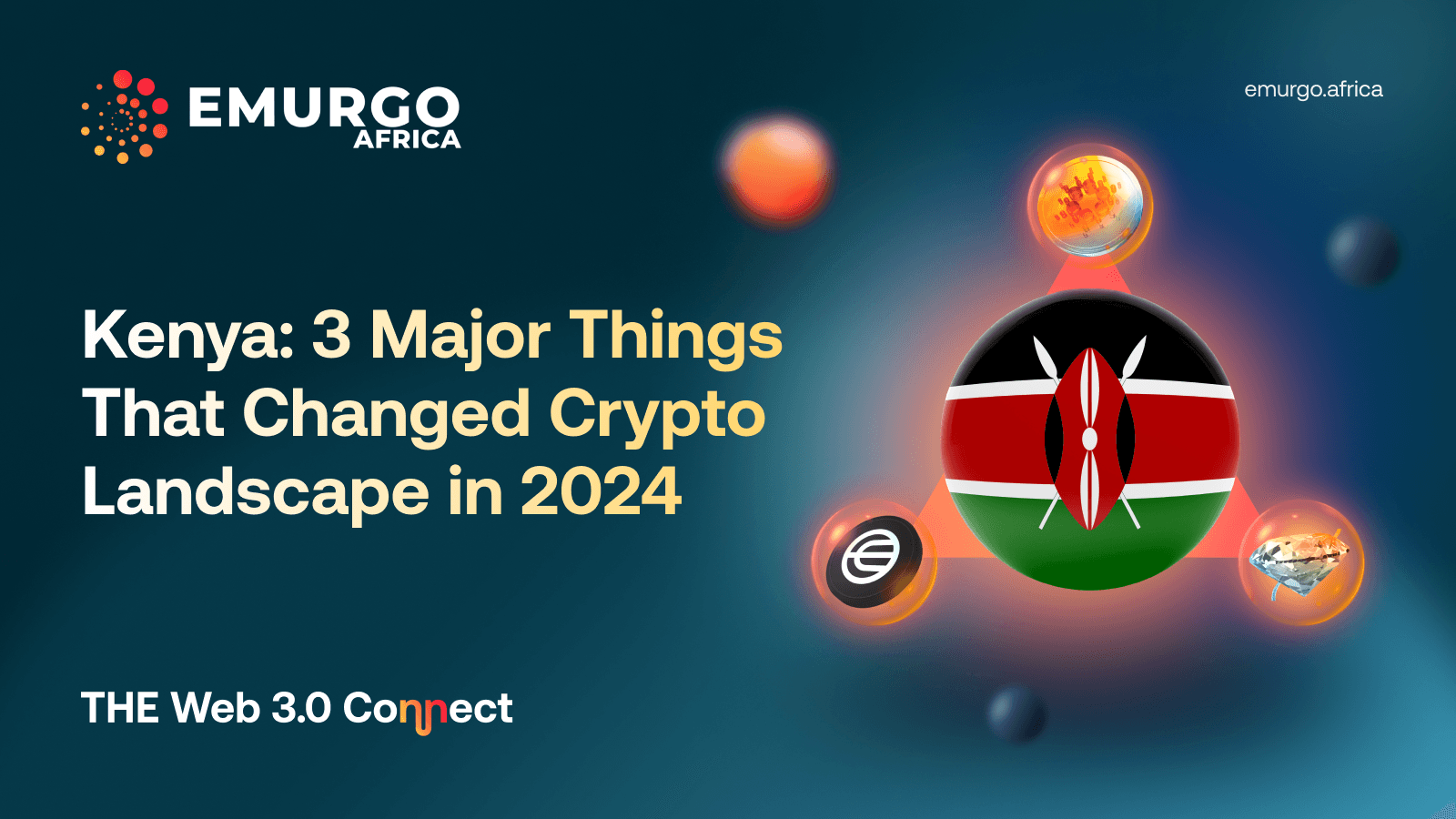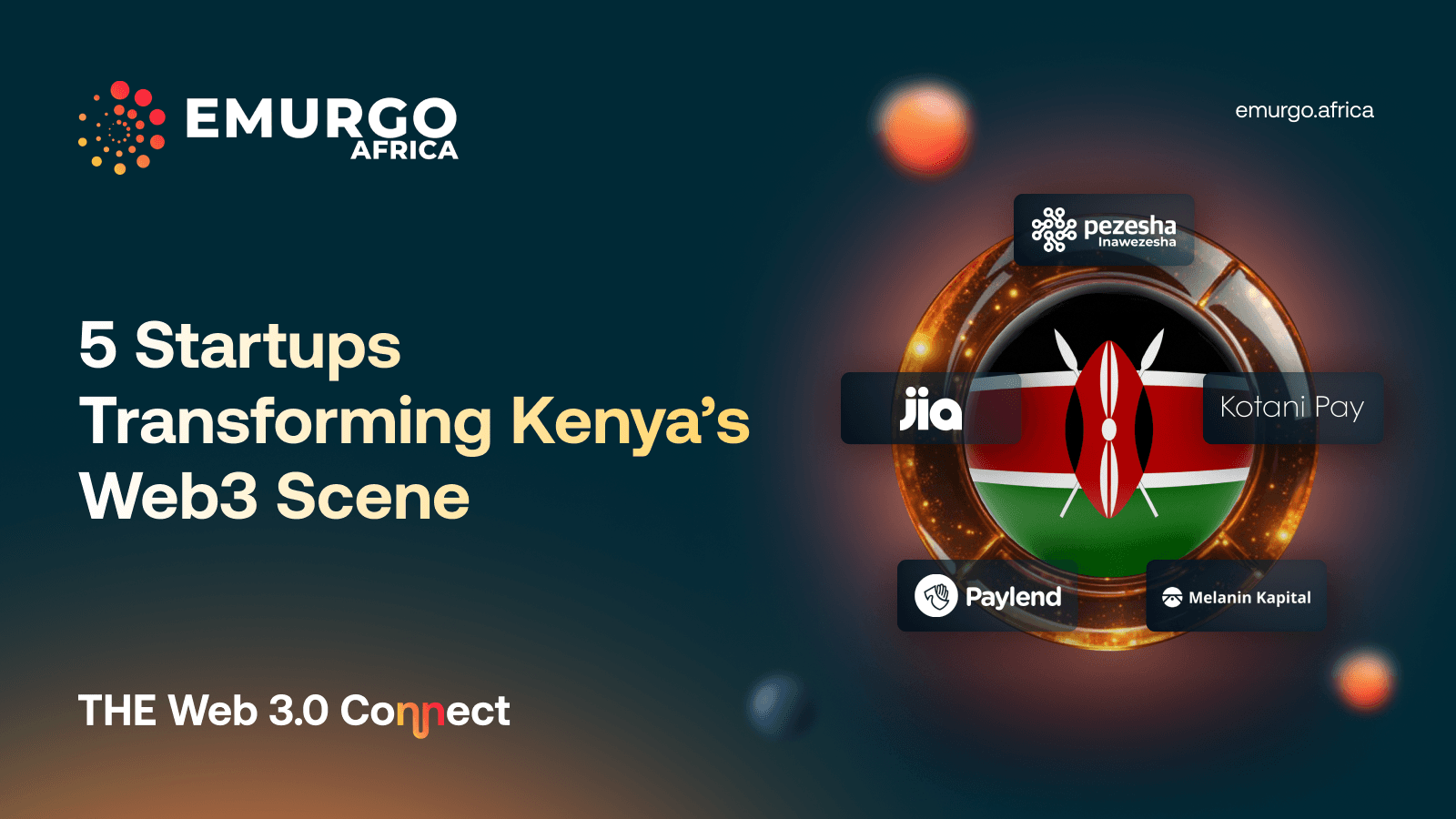By Shogo Ishida and Yosuke Yoshida, Co-CEOs, EMURGO Africa
The Kenyan cryptocurrency landscape has undergone a significant transformation this year, with new trends emerging. In the past 12 months, there has been rising interest in crypto token airdrops, with recent protests momentarily fueling retail demand for crypto. It is also during this period that the Worldcoin crypto project in Kenya was suspended and then allowed to operate again.
Key Takeaways:
- Anti-Finance Bill protests boost crypto appeal.
- Kenyans rush to cash in on crypto airdrops.
- Worldcoin gets banned in Kenya, then allowed to resume operations.
- Widespread anticipation of a potential bitcoin bull run in the next 12 months.
Anti-Government Protests Fuel Crypto Appeal

Kenyans staged nationwide anti-finance bill protests in June and July this year, to voice their concerns over overtaxation, corruption, unemployment and poor governance. The social unrest reinforced the view that cryptocurrencies, especially Bitcoin, are a better store of value and a potential hedge against local currency devaluation.
The Kenyan shilling recorded fluctuations against the US dollar during the protests and Kenyans now see crypto as a viable alternative to the traditional financial system, one that offers them financial freedom and the chance for economic upliftment.
During the protests, crypto enthusiasts were active on social platforms educating Kenyans how to set up digital wallets and invest in cryptocurrencies and help them bypass comparatively high transaction fees of the mobile money platform M-PESA.
Blockchain’s role to tame the government’s wasteful spending and rampant corruption also came to the limelight, with experts rooting for the technology to help instill public accountability on funds allocated to government projects.
The Fintech Association of Kenya lauded Kenya’s Gen Z protesters for orchestrating decentralized and distributed demonstrations across the country, like a blockchain network.
In the 2023 Finance Bill, parliament introduced a crypto tax on income derived from the transfer or exchange of digital assets (such as crypto currency transactions) at a rate of 3%. There was no amendment to this clause in the failed 2024 Finance Bill proposals.
The Airdrop Rush: Kenyan Youth Chasing New Opportunities
A notable trend in Kenya's crypto scene is the rush among young investors to participate in various cryptocurrency airdrops. Airdrops, which involve the free distribution of new tokens to existing cryptocurrency holders or participants in specific activities, have become increasingly popular as a way to potentially gain exposure to new projects at no initial cost.
Three airdrops have garnered significant attention among Kenyan youth:
-
Hamster Kombat Airdrop: Hamster Kombat, a Telegram-based game, is planning for an airdrop on September 26, and has attracted Kenyan participants due to its promise of rewarding early adopters. The enthusiasm stems from the potential for receiving tokens of a project in its early stages, the relatively simple participation requirements and the project's focus on DeFi. The airdrop is expected to be one of the biggest in crypto history.
-
Blum Airdrop: The Blum airdrop, by Blum Crypto, a Telegram-connected cryptocurrency exchange, is scheduled for September 20, and has caught the attention of Kenyan crypto enthusiasts due to its association with the growing field of decentralized social media. Factors driving interest include the potential for early adopters to gain a significant stake in the project.
-
Optimism Docs Airdrop: Airdrop 3, which allocated over 19 million OP (Optimism) tokens in September 2023, was disbursed directly to eligible wallets with no need for claiming via interaction. Airdrop 4 came in January. This efficiency, along with the potential for financial gains, is the main reason Kenyans are interested in this airdrop. The previous airdrop, Airdrop 2, rewarded users for participating in Optimism governance and using the OP Mainnet. Airdrop 5 will distribute 11.7 million OP tokens on January 20, 2025 to users for their participation in governance and their activity on the Optimism mainnet.
Worldcoin in Kenya: On, Off, Then On Again
In August 2023, the Kenyan Interior Ministry suspended Worldcoin's operations, citing privacy and safety concerns about its method of obtaining user data. The project required users to scan their irises in exchange for a digital ID and free cryptocurrency tokens.
Thousands of Kenyans had queued up to register for the currency, but the High Court,the Communications Authority of Kenya and the Office of the Data Protection Commissioner (ODPC) raised concerns about how the biometric data was stored, the monetary reward for user data, and the risks of having such data in the hands of a private company.
There were also concerns about the lack of an age-verification mechanism during the registration process. An investigation by the ministry of the interior and security services was launched.
In September 2023, a Kenyan parliamentary committee recommended a shutdown of Worldcoin's operations nationwide, which would result in the platform losing a significant portion of its user base. The committee also suggested removing the Worldcoin app, WorldApp, from the Appstore in Kenya.
Worldcoin stated it was planning to collaborate with the government and abide by local regulations to resume its operations. In March 2024, reports indicated the US government had been pushing Kenya to lift the suspension, but the Kenyan government remained firm on its decision.
In June, Worldcoin was cleared by the Director of Criminal Investigations (DCI) to resume operations. The company says it hopes to continue operations in the coming months, but the case in court is yet to be determined.

DISCLAIMER: The information in this content (website or other form) does not represent an offer or commitment to provide any product or service. The analysis, opinions and estimates expressed in this content are those of the respective authors, and may differ from those of EMURGO Africa and/or other EMURGO Africa employees and affiliates. Copying, re-publishing or using this material or any of its contents for any other purpose is strictly prohibited without prior written consent from EMURGO Africa.




